Search Results
Showing results 101 to 120 of 200
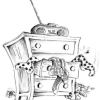
Four-Sock Drawers
Source Institutions
These puzzles use four colors of socks in a drawer to get learners thinking algebraically.
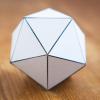
Viral Packaging
Source Institutions
In this activity, learners create virus models, including nucleic acid and proteins, using simple materials. This resource includes information about virus structure and gene therapy.
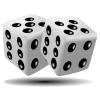
What's the Risk?
Source Institutions
To discover the risk and protective factors involved in substance addiction, learners play a game of chance to determine whether a fictitious child is likely or unlikely to abuse drugs.
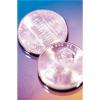
What's in a Penny?
Source Institutions
In this chemistry activity, learners use chemical reactions to observe the composition of an alloy.
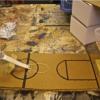
Finger Basketball
Source Institutions
In this activity, learners build mini-basketball courts using cardboard and measuring spoons. Use this activity to introduce learners to catapults, forces, and levers.
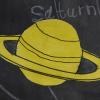
Solar System on a Stick
Source Institutions
Learners build a model of the planets in the solar system. In their model, the planets are spaced in their relative distance from the Sun.

Backyard Graphing
Source Institutions
In this math activity, learners will create a scale diagram of their backyard or other outdoor area on graph paper.
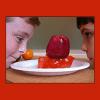
Space Jell-O
Source Institutions
Albert Einstein proved that space bends around anything that has mass. This activity uses Jell-O's ability to bend around objects as a model for space bending around planets and stars.
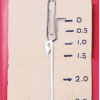
Rubber Band newton Scale
Source Institutions
In this activity, learners make a simple spring-like scale using a rubber band instead of a spring, and calibrate the scale in newtons (N).
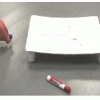
Rutherford Roller
Source Institutions
In this activity, learners make a black box device that serves as an excellent analogy to Rutherford's famous experiment in which he deduced the existence of the atomic nucleus.
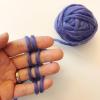
Finger Knitting
Source Institutions
In this activity, learners will learn how to knit using only their hands. Learners will explore patterns and fabrication as well as develop fine motor skills and patience through this activity.
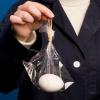
Egg Bungee
Source Institutions
Learners attach an egg to a rubber-band bungee cord and drop the egg.
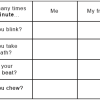
Blink
Source Institutions
In this self-measuring activity, learners observe and record how many times a minute they blink, take a breath, and chew, as well as how many times a minute their heart beats.

Sustainable Fishing
Source Institutions
In this activity, learners use a model for how fishing affects marine life populations, and will construct explanations for one of the reasons why fish populations are declining.
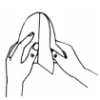
Cut-Fold-Staple
Source Institutions
In this activity, learners discover how to rotate a flat shape into the third dimension. Learners draw and cut out a shape that has at least one straight edge on an index card.
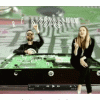
Sound Representation: Modems Unplugged
Source Institutions
In this activity, learners listen to songs and decode hidden messages based on the same principle as a modem. As a final challenge, learners decode the binary messages in a music video.
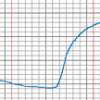
The Daily Ups and Downs
Source Institutions
In this activity, learners graph 48 hourly air temperatures from a local weather observation site and observe the diurnal temperature variations.
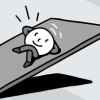
Marble Ride
Source Institutions
In this activity, challenge learners to design a roller coaster ride for a marble using cardboard and other simple materials.
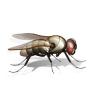
Fly on the Ceiling
Source Institutions
In this math lesson, learners play two different games to help them understand coordinates. First, learners read the book, "The Fly on the Ceiling," by Julie Glass.
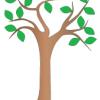
A Tree of Genetic Traits
Source Institutions
Learners mark their traits for tongue rolling, PTC tasting (a harmless, bitter chemical), and earlobe attachment on tree leaf cut-outs.
